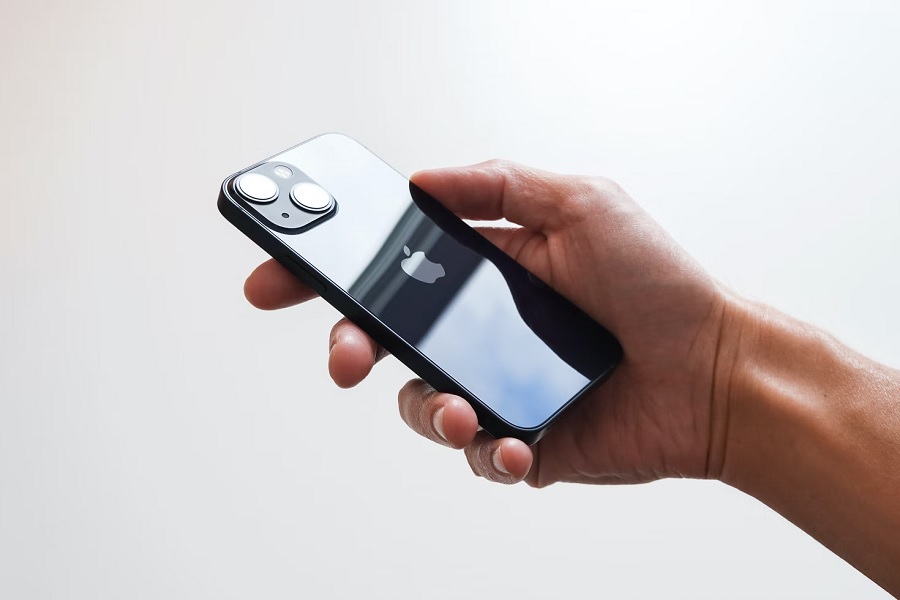Last year, Apple was rumored to be working on adding satellite communication features speculated to be introduced on the iPhone 13 series. While that did not materialize, a new report claims the tech giant is still working on the technology and has been testing iPhone 14 prototypes that can send text messages even without a cellular connection.
9To5Mac reports that Apple has been continuously working on adding satellite communication features internally known as “Stewie.” There is not much information about the technology for now, but the publication’s sources claimed Apple has made enough advancements in the technology that it is now testing prototypes that can send text messages using satellite networks.
That means the future iPhones might be able to make communications that do not rely on cellular connections. It would be a useful feature, especially when users are in areas where there is no cellular network coverage. However, the same report is not certain if the technology would be ready in time for the iPhone 14 launch later this year.
Reports about the iPhone satellite functions have suggested various ways on how Apple could implement the technology. Analyst Ming-Chi Kuo expected Apple to use low earth orbit satellites for the non-cellular connections. Bloomberg’s Mark Gurman also previously reported that Apple has been developing the technology. But he noted that it would not make iPhones a complete alternative to existing satellite phones. He expects the feature to be used only in emergencies.
Meanwhile, 9To5Mac’s report this week also provided more information on Kuo’s recent prediction that the iPhone 14 series would be using two different chips this year. The publication noted that Apple is actually using two versions of the A15, one with 4GB RAM on the iPhone 13 mini and iPhone 13 and another with 6GB RAM on the iPhone 13 Pro and iPhone 13 Pro Max. 9To5Mac’s sources suggest Apple could bring the A15 chip with 6GB RAM to the iPhone 14 (6.1-inch) and iPhone 14 Max (6.7-inch), just as Kuo mentioned in a recent prediction.
While Apple has always used an all-new chip for annual iPhone releases, this is not a new strategy for the company. It can be recalled that the 2018 iPad Pros shipped with the A12X Bionic, while its predecessors were released with essentially an upgraded version of the SoC that Apple called A12Z Bionic.
Photo by Jeremy Bezanger on Unsplash



 AWS Data Center in UAE Hit by Fire After Objects Strike Facility Amid Regional Tensions
AWS Data Center in UAE Hit by Fire After Objects Strike Facility Amid Regional Tensions  Snowflake Forecasts Strong Fiscal 2027 Revenue Growth as Enterprise AI Demand Surges
Snowflake Forecasts Strong Fiscal 2027 Revenue Growth as Enterprise AI Demand Surges  OpenAI Faces Scrutiny After Banning ChatGPT Account of Tumbler Ridge Shooting Suspect
OpenAI Faces Scrutiny After Banning ChatGPT Account of Tumbler Ridge Shooting Suspect  Lockheed Martin Secures $1.9B U.S. Air Force Contract for C-130J Training and Maintenance Systems
Lockheed Martin Secures $1.9B U.S. Air Force Contract for C-130J Training and Maintenance Systems  Nvidia to Launch New AI Inference Processor to Boost OpenAI Performance
Nvidia to Launch New AI Inference Processor to Boost OpenAI Performance  Samsung Electronics Stock Poised for $1 Trillion Valuation Amid AI and Memory Boom
Samsung Electronics Stock Poised for $1 Trillion Valuation Amid AI and Memory Boom  AI is already creeping into election campaigns. NZ’s rules aren’t ready
AI is already creeping into election campaigns. NZ’s rules aren’t ready  Facebook Outage Disrupts Thousands of Users Across the United States
Facebook Outage Disrupts Thousands of Users Across the United States  Federal Judge Blocks Virginia Social Media Age Verification Law Over First Amendment Concerns
Federal Judge Blocks Virginia Social Media Age Verification Law Over First Amendment Concerns  Coupang Reports Q4 Loss After Data Breach, Revenue Misses Estimates
Coupang Reports Q4 Loss After Data Breach, Revenue Misses Estimates  Synopsys Q2 Revenue Forecast Misses Expectations Amid China Export Curbs and AI Shift
Synopsys Q2 Revenue Forecast Misses Expectations Amid China Export Curbs and AI Shift  OpenAI Explores New Code-Hosting Platform to Reduce Dependence on GitHub
OpenAI Explores New Code-Hosting Platform to Reduce Dependence on GitHub  OpenAI and U.S. Defense Department Update Agreement to Clarify AI Usage Terms
OpenAI and U.S. Defense Department Update Agreement to Clarify AI Usage Terms  Samsung and SK Hynix Shares Hit Record Highs as Nvidia Earnings Boost AI Chip Demand
Samsung and SK Hynix Shares Hit Record Highs as Nvidia Earnings Boost AI Chip Demand  Pentagon Weighs Supply Chain Risk Designation for Anthropic Over Claude AI Use
Pentagon Weighs Supply Chain Risk Designation for Anthropic Over Claude AI Use 































